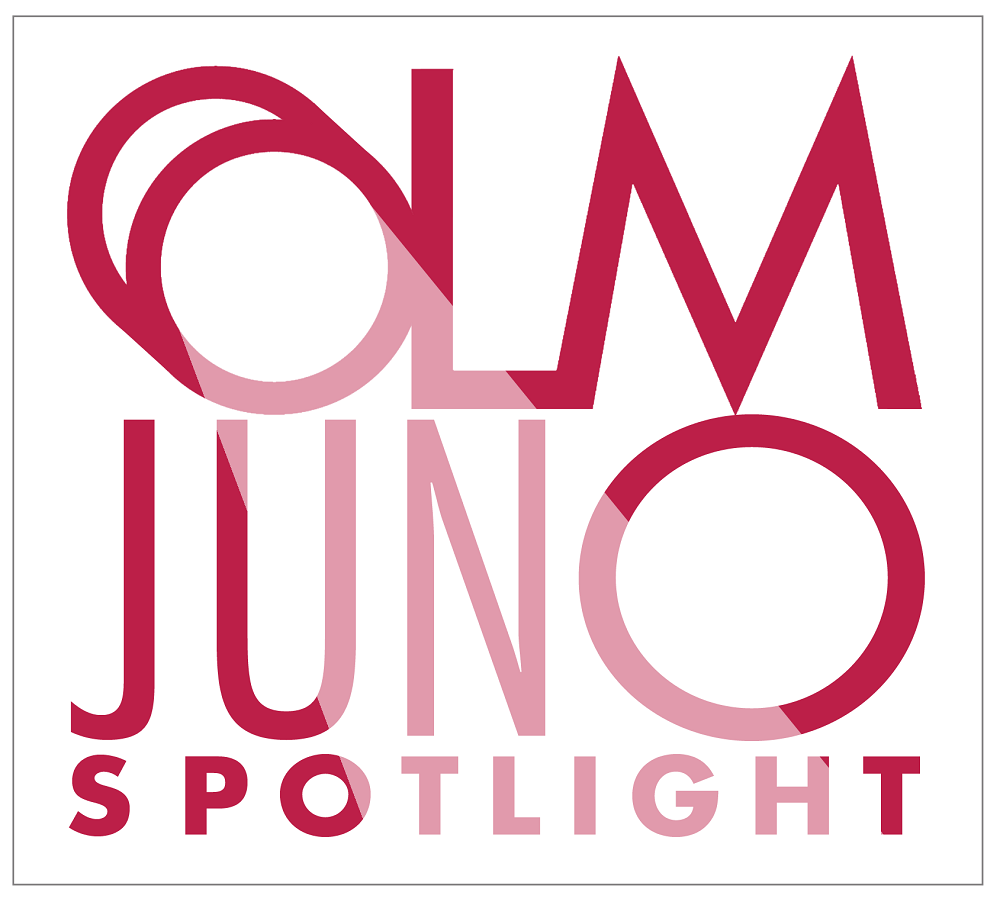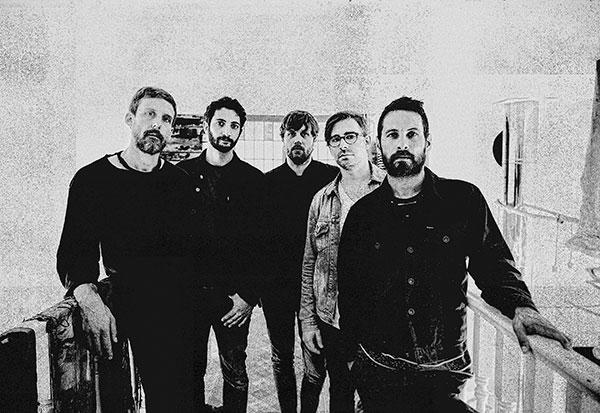
Rock Album of the Year
(Terraform)
Sam Roberts has been rocking the (True North strong and) free world for fifteen years now. It all began with his debut EP, The Inhuman Condition, which received two JUNO nominations.
Since then, he’s released a dozen charting singles, including “Where Have All the Good People Gone?” “Them Kids,” and “We’re All in this Together.” Of course, in true rock n’ roll tradition, his music is best experienced as an album proper, and it has been received as such, with all of his LPs peaking in the top ten of the Canadian Albums Chart.
Though Roberts has long worn his classic rock influences on his sleeve, his latest album, Terraform, is a bit of a sonic departure. Yes, it’s undoubtedly a Sam Roberts release, featuring tracks like the sleek, slinky “If You Want It,” but a good portion of its runtime is characterized by a slower, more spacious atmosphere, on full display on songs such as the album’s title track.
Ottawa Life had a chance to sit down with Roberts at the JUNO Gala tasting party (which you can read about here) to talk about his new album and some of his early influences.
Ottawa Life: Seeing as you’re the musician at this event, do feel like you’ve started to become an ambassador of sorts for Canadian musicians?
Sam Roberts: [Laughs] I really enjoy this sort of event. It’s associated two things that have been a big part of our career path as a band. First off is the JUNOs. I came in with a great deal of skepticism at the beginning, and quickly converted, due to the fact that this is really a celebration more than a contest. I think I’ve been opposed to the idea of music as competition from the very beginning, but the idea of celebration is much closer to my heart.
The second part of it is [Jackson-Triggs Estate Winery]. The Jackson-Triggs Summer Concert Series has become one of the best times we have on stage all summer long. I see it in the faces of the people who come to see us. If it’s a case of coming to an event like this to celebrate those two things, then I’m happy to do it.
A few questions about Terraform. Between the title track’s dystopic lyric video, and the lyrics of songs such as “Fiend,” “Rogue Empire” and “Black Spark,” which have this rebellious and defiant theme running through them, do you see it as a concept album of sorts?
I don’t think I saw it that way in the beginning. Maybe in retrospect, I’m realizing that perhaps it is. With every record, you’re trying to paint a picture of the world that you’re living in and the world you’d like to live in, or maybe the world that you’re forced to live in. Sometimes that idea is spread apart enough, so that it doesn’t feel like a concept album that you’re trying to constantly reinforce. But I think 2015 and 2016 specifically were those kinds of years, where everything felt like it was coming to a head.
So in trying to sort of take a snapshot of those moments, it does feel like there is this sort of confrontation taking place, an ultimate battle taking place. And that we were going to live, whatever decision we made at the time was going to define the world that we lived in afterwards in a very real, a very visceral way. We’re all seeing that now. Not to say that it’s the end or that it’s doom come to be, but to know that we are standing on the precipice of something. What kind of decisions do you make when you’re confronted with that? And again, it’s only in retrospect now that I see that this record was feeding off of that energy, that the world wasn’t going to be the same after a certain point. But we had to figure out a way to live through it and come out on the other side with solutions of what the future is going to be.
During the refrain of the title track, there’s the line, “We’re starting over.” What are you referring to?
I think it’s musical in one sense for sure. Every time you make a record, you’re obviously building on what you’ve done before, but you also have this sense of renewal, a sense of rebirth, that you’re drawing on something… not just fresh, but some source of untapped energy. Rather than just beating down the same path. That’s why making an album is such an important moment in a band’s life cycle. It is a chance to sort of shed your old skin like a snake, to see what this new skin is going to be for a while, knowing that new skin will be old skin in few years as well, and embracing that as an ideal. Embracing that as an opportunity.
Then again, to expand that lyric to the world around us, I think it [points] to the future. Maybe we haven’t hit that point yet, where we’ve broken it so completely that we have to rebuild from ground zero. I don’t think we’re there yet. So maybe on a more literal front, it’s a projection of where things are headed if we continue to let things go this way. But again, my belief is in the resilience of the human spirit. It’s always been at the heart of everything that we’ve ever done. You confront the bad, confront the obstacles that are in your way, but you find a way around them, find a way to overcome. I always approach songwriting like that. It’s never about despair. It’s reality perhaps, but it’s never without hope.
Going back to the music itself, Terraform feels like a step forward in time. It feels like there’s some Stereolab and Primal Scream in there.
Primal Scream for sure. Stereolab too. These were two bands that were very influential for us in the 1990s. Spiritualized is another band that is always coming back. Those bands are always simmering in what we do, and always have.
Was it more conscious on the last album?
I think it’s ebb and flow more than anything. You play something and it moves you in a certain way, especially when music is attached to a time in your life – late teens, early twenties – a time when music is not just important in terms of what you listen to, but how you define yourself, how you dress, how you see yourself in relation to the world around you. For us, Primal Scream, definitely Spiritualized, Stone Roses: those were bands where it was more than just the music. As you write records, you don’t know where it’s going to be: is it going to be here or back in that other moment? The last couple of records were very much a time where I was moved by what I listened to exclusively in the late eighties, early nineties.
You had Graham Walsh (Holy F*ck) in the studio with you. What’s your relationship with him?
I knew Holy F*ck from before, but I didn’t know Graham as a person. He came up to Montreal and I played him a bunch of demos that I had been recording, and we sat in the basement and started talking about music. We met up with the guys in the band and went out for dinner, and it was just, “you wanna make a record together?” A very brief courtship. It wasn’t knowing that this guy produces certain results and you’re going to get it. The idea was, “what if we take you and us and put it together? We don’t really know what’s going to happen; let’s just see what comes out of it.” That’s what this whole record was born out of. There was very little strategic planning.
What kind of energy did he bring into the studio?
Graham is very adventurous when it comes to how things sound. You can play the same five notes with Sound A and Sound B, and your emotional response will be completely different. Graham is very much about honing in on how you, as a listener, respond. I really enjoyed that aspect – aside from the fact that we became very close – that he was as much into that process as we are as a band. Going into studio and thinking, “if this sounds fuzzy and icy, and this sounds warm and smooth, how does the person listening respond to it?” It became a big part of the conversation. And it might take a long time for people to hear. You realize that you might not be making a record that people will be listening to in the first two weeks and be thinking, “oh, I get it.” A lot like going back and listening to a Spiritualized record from 1993, and thinking, “holy shit, they’re talking to me now in 2017.” At the time you’re thinking “this is new, this is different.” But I listen back and I’m thinking, “that is prognosticated, that is looking forward. That is hearing something that no one else is hearing yet.”

